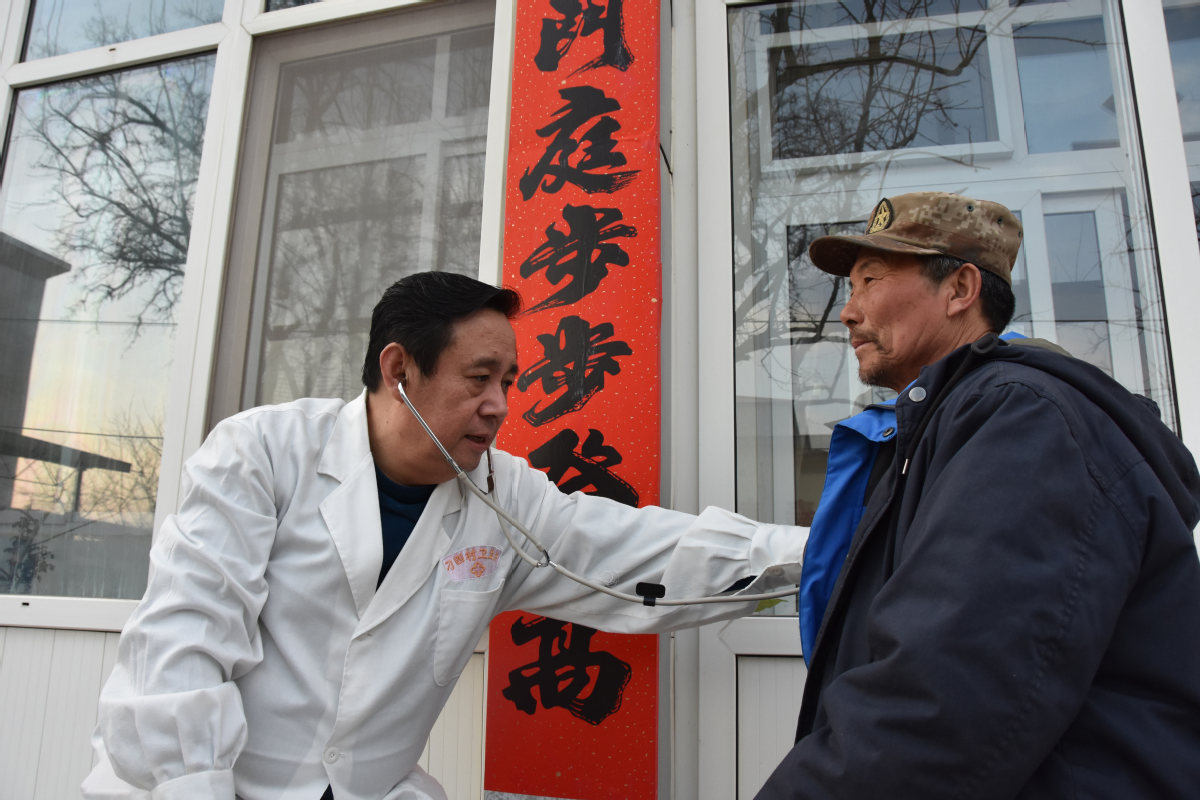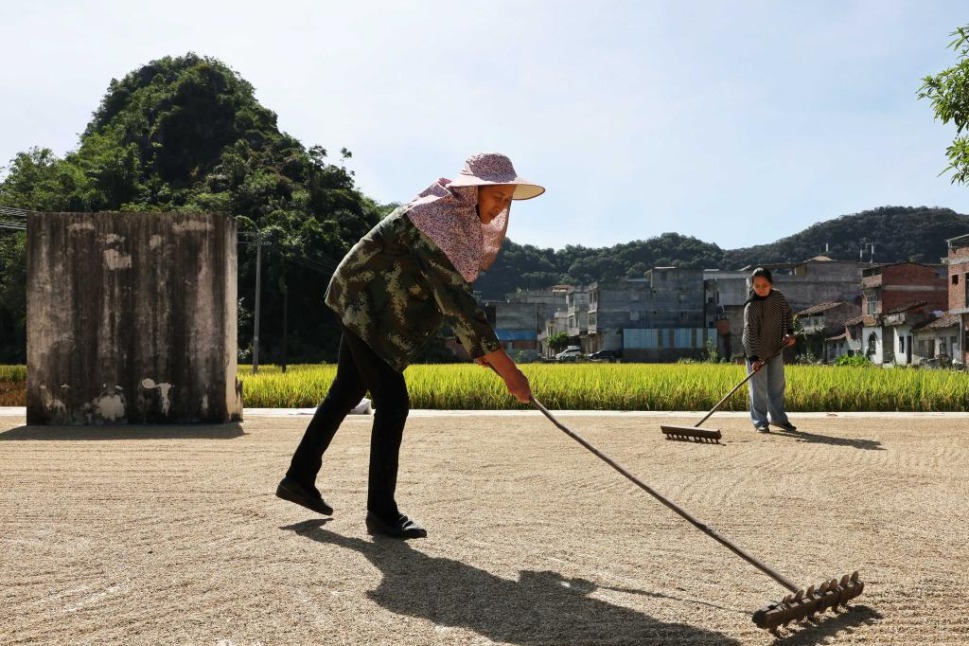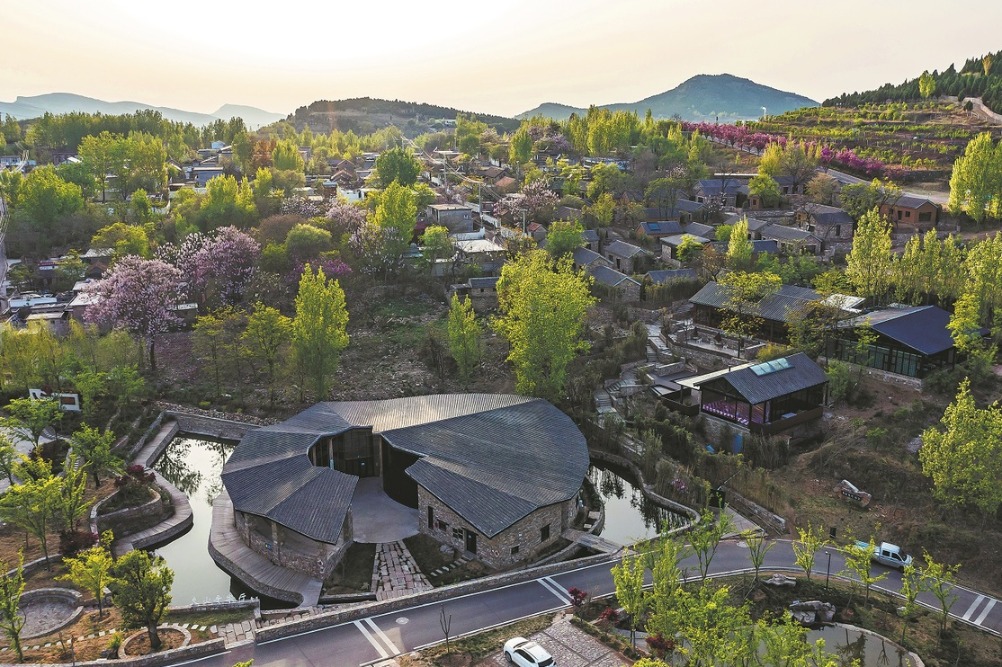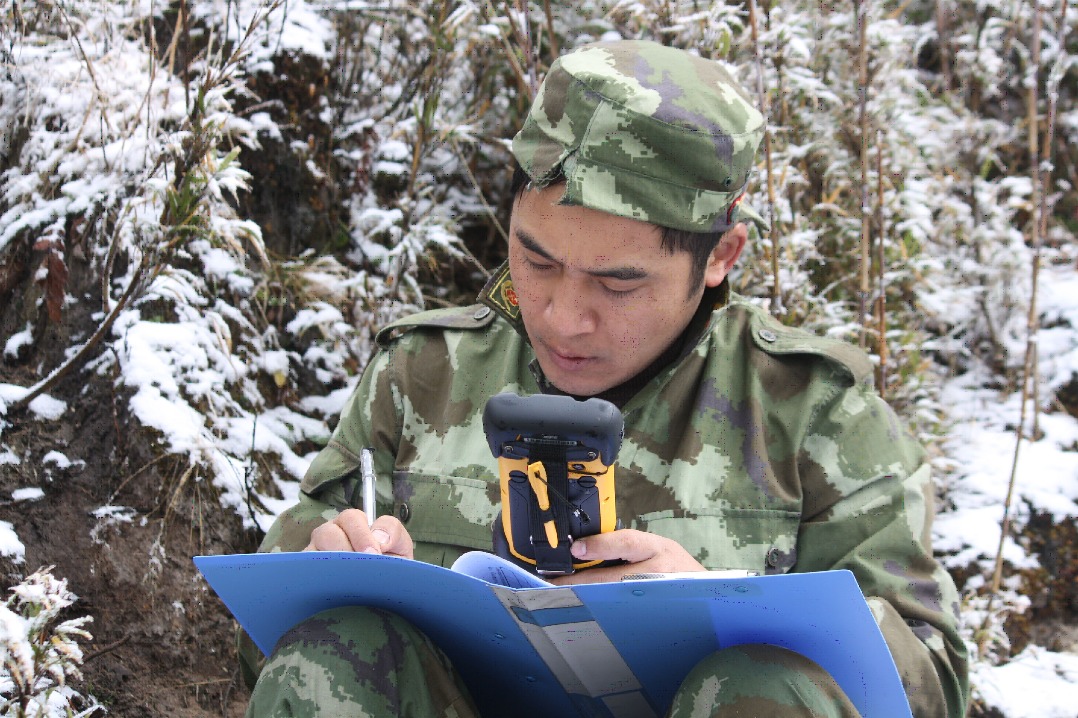Doctor wants improved countryside healthcare


Village doctor Zhou Songbo treasures a pile of medical records almost two meters high in his clinic in a village in Zhuozhou, Hebei province, where he has worked for more than 32 years.
The 59-year-old has gained fame for his charity, as he allows patients unable to pay their medical fees to write IOUs. He said he has accumulated 2,100 IOUs totaling over 231,000 yuan ($34,370) over the years.
"Some of them have now become symbolic," said Zhou, a Hebei deputy to the National People's Congress. "I never thought of cashing them."
Zhou said his family clinic receives an average of 100 patients a day.
However, he is keenly aware that it is an exception, with many villages facing a healthcare crisis because few young doctors are willing to work in rural areas.
Some clinics in rural areas struggle along, with few patients and a shortage of medical talent.
A lack of nursing services in rural areas is another problem that is becoming increasingly severe, as village populations age rapidly due to the trend of younger people moving to urban areas for jobs.
"In the area where I come from, there are only older people and children in the villages," Zhou said. "Bodies of some elderly have even been found days after they died."
Zhou said one of his proposals to the government as an NPC deputy this year will be for policies to be rolled out to ensure that elderly people from Beijing, Tianjin and Hebei enjoy the same access to nursing care.
He said different social security standards in the three provincial-level areas have been an obstacle for elderly people seeking nursing care.
He will also propose encouraging the development of institutions for both nursing and medical care.
There were close to 250 million Chinese aged 60 or above by the end of last year, according to the National Bureau of Statistics.
"The aged care problem is even more severe in the rural areas, where there are few nursing homes," Zhou said, adding that existing facilities have problems such as poor facilities and low levels of staff proficiency and treatment.
Moreover, rural nursing homes are generally too expensive for elderly people.
"Thus, it is important for the authorities to roll out more preferential policies for rural nursing homes, such as lower prices for land use, tax reductions and financing so that more private companies can be encouraged to invest in the sector," he said.
- 'Bauhinia Cup' ignites patriotism among Hong Kong students on PRC's 75th anniversary
- Over 50,000 in China's Hainan evacuated as Typhoon Trami grows
- Xi congratulates Chapo on election as Mozambique's president
- 5.5-magnitude quake hits China's Xinjiang: CENC
- 2024 China International Digital Economy Expo highlight digital industrialization achievements
- Deliberately dodging fact of Taiwan's return to China exposes Lai's nature of seeking 'independence': mainland spokesperson




































